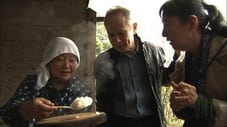
Japanology Plus (2014)
← Back to main
Jun Afuso — Editor
Episodes 24
Job Hunting
In the business districts of Japan, a major battle plays out each year: the job hunt. Students spend their last year of university working to land a full-time job with benefits. Although "lifetime employment" is on the wane, a long career at a single firm remains an ideal. This time, we look at Japan's distinctive system of hiring new graduates. Our expert guest is Taichiro Tsuji, a former HR professional who knows the hiring process inside and out. In Plus One, how to ace your job interview.
Read MoreThe English Conversation Business
Despite years spent studying the language at school, many Japanese feel inept at English. Perhaps that's why Japan's English conversation business rakes in hundreds of billions of yen each year. This time on Japanology Plus, we begin a two-part series focusing on English in Japan, and part one looks at English conversation classes. Our expert guest is Ruth Marie Jarman, a regular on an NHK English language education program. And in Plus One, a linguistic experiment on the streets of Tokyo!
Read MoreShrine & Temple Carpenters
Japan boasts many shrines and temples built using sophisticated techniques that have been passed down through the centuries. This time, we feature shrine and temple carpenters, the artisans behind many of Japan's best-known religious monuments. Our expert guest is Hideo Senda, the owner of a traditional carpentry firm that has been in business for 140 years. He will introduce us to some of the ancient techniques found in Toji, a temple in Kyoto. And in Plus One, carpentry with a difference.
Read MoreKids' Summer Holidays
Every year children in Japan eagerly look forward to their summer vacation, which generally runs from late July to late August. How do Japanese kids spend the hottest part of the year? Between homework, studying for entrance exams, playing video games, and going to summer camp, things can get rather busy! On this edition of Japanology Plus, our theme is kids' summer holidays. Our expert guest is biologist Takeshi Naganuma. And in Plus One, how children enjoy Japan's traditional summer festivals.
Read MoreHaunted Houses
It's Japan's timeless summer thrill...haunted houses! There are dozens of haunted-house attractions around Japan, many of them at theme parks. These creepy experiences are popular with people seeking to beat the scorching heat with spine-chilling fear, and they offer a distinctive style of fright. Our expert guest this time is Hirofumi Gomi, who has been the brains behind roughly 50 haunted houses in Japan. And in Plus One, eerie ghost art of centuries past.
Read MoreCameras
From compact point-and-shoot digital cameras to high-end SLRs, and those built into smartphones, cameras are a part of everyday life in Japan. Durability, affordability, and advanced features have earned Japanese-made cameras great popularity around the world. This time we explore Japan’s fascination with cameras. Our expert guest is Chotoku Tanaka, a professional photographer who also writes extensively about cameras and photography. And in Plus One, how to get a unique photo for posterity!
Read MoreWhisky
While Japan is halfway around the globe from the world's traditional whisky-making centers, in recent years premium Japanese whiskies have been winning top prizes in big competitions and winning fans in many countries. But these achievements are actually the culmination of decades of passionate efforts by dedicated professionals. Our expert guest this time is Mamoru Tsuchiya, editor-in-chief of a Japanese magazine devoted to whisky. And in Plus One, the perfect ice "sphere" for whisky on the rocks.
Read MoreBreakfast
In Japan, a traditional breakfast consists of steamed rice with miso soup and other side dishes. But these days noodles, pancakes, bread and granola are among the many other popular options for breakfast. This time on Japanology Plus, our topic is breakfast. We'll see what favorite foods, old and new, the Japanese eat to start the day. Our expert guest is Chieko Mukasa, a food journalist who traveled far and wide to write a book about Japanese breakfasts. And in Plus One, how to make great tamago-kake-gohan: raw egg mixed with steamed rice.
Read MoreRunning
Japan is a country of 10 million runners and some 2,000 open-entry running events, the most popular of which attract large crowds and live nationwide TV coverage. Japan loves not just the action but also the drama of an event such as ekiden, a unique form of long-distance relay with a century of tradition. This time our theme is running. Our expert guest, sports journalist Akemi Masuda, is herself a former Olympic marathon runner. And in Plus One, we experience the fun of a local running event.
Read MoreShopping Streets
As in much of the industrialized world, a significant amount of shopping in Japan takes place in towering shopping malls and chain supermarkets. But cities and towns throughout the country are also home to a more traditional form of shopping thanks to their shotengai, or shopping streets.
Read More100 Yen Shops
Over the past year, 98% of people in Japan shopped at a 100 yen store. These shops were once associated with cheap, low-quality merchandise. Over the years, however, quality has been improving, and now 100 yen goods are often used in everyday life. Exactly how do 100 yen shops contribute to general well-being in Japan? This time on Japanology Plus, our expert guest is Emiko Masao, who writes an influential blog about making the most of what 100 yen shops offer. And in Plus One, ways to use 100 yen items in a DIY project.
Read MoreMechanical Dolls
Karakuri-ningyo, or mechanical dolls, can be regarded as traditional robots. Their technology is not just interesting but actually useful even today. This time on Japanology Plus, our theme is mechanical dolls. Our guest is Yoshikazu Suematsu, a visiting professor at the Aichi Institute of Technology who introduces us to the fascinating technology behind these dolls. And in Plus One, Matt Alt learns how to operate festival float dolls with local students who are carrying on the tradition.
Read More




